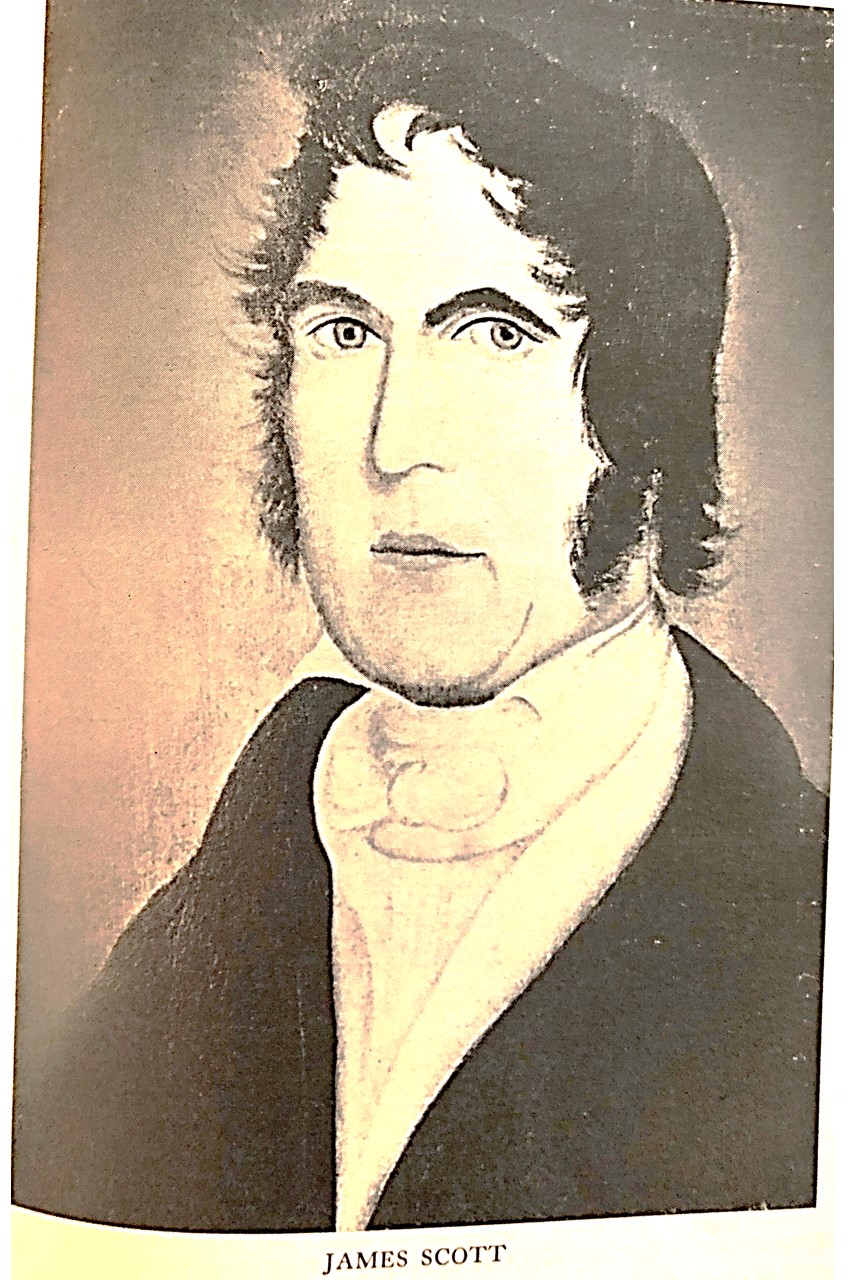Biographical Details
Date of Birth: May 29, 1767
Birth Location: Pennsylvania, (now) USA
Graduation Year(s): 1844
Degree(s) Earned: Doctor of Laws (Honorary)
Date of Death: March 2, 1855
Death Location: Sullivan County, IN, USA

Date of Birth: May 29, 1767
Birth Location: Pennsylvania, (now) USA
Graduation Year(s): 1844
Degree(s) Earned: Doctor of Laws (Honorary)
Date of Death: March 2, 1855
Death Location: Sullivan County, IN, USA
James L. D. Scott was born in 1767 in what was still part of the British American Colonies but is now Pennsylvania.
In 1810, he was appointed by territorial governor William Henry Harrison as prosecutor of Clark County, Indiana Territory. He was commissioned Chancery Judge in 1813. Governor Harrison continued to employ him to try various cases for the next three years. Scott was on the committee that helped write the original Indiana State Constitution, and he is credited with writing the sections related to education.
Scott was a member of the Indiana Supreme Court from December 28, 1816 to December 28, 1830. He was one of three judges simultaneously appointed as the first judges of that court.
In 1827, Scott was president of the team of five observers who traveled to Bloomington to examine the students of Indiana State Seminary. He reported back to the General Assembly the recommendation that it be upgraded to a college. They passed that recommendation, and in 1828, Scott became one of the Board of Visitors (a liaison committee between the university and the state legislature) of the newly named Indiana College (now IU).
In the 1830s, Scott practiced law in Charlestown, Indiana and briefly published a newspaper called Comet.
Scott became Registrar of the Federal Land Office in Jeffersonville, Indiana in 1840, a position he held for four years.
In 1841, when it officially became IU, Scott was on its Board of Trustees, which he served on until 1850.
In October 1844, IU awarded Scott an honorary Doctor of Laws degree.
Scott returned to Charlestown and opened a school for girls in 1845. Although it was of short duration, Lewis Baird wrote, “I could name several grandmothers, well known to some of you, who were under his tuition when they were frisky little girls.” With his school failing and having no pension or savings, Scott had no means of economic support and was largely forgotten. Fifty-four years after his death, Lewis Baird, who had known him personally, wrote “of this man I have never seen in print any biographical sketch.”
Scott lived to see his earlier work overwritten and superseded as Indiana’s governor called for a new state constitution in 1848, which was finished in 1851.
Scott married, but he and his wife had no children. At some point, he adopted and raised a daughter. His wife died early. Scott searched for and found his daughter living in Carlisle, Indiana. His daughter let him make his home there until his death in 1855.
One of Scott’s contemporaries said that he was “one of the purest men in the State, a good scholar, and a fine lawyer.” In 2016, the Indiana Supreme Court honored him at a memorial ceremony, celebrating his original work on Indiana’s first constitution.